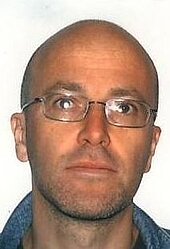Glasgow, Rupert
Wir gratulieren herzlich zum bestandenen Rigorosum am 4. Oktober 2016.
Dissertationsthema: "Die Naturgeschichte des Selbst"/"The Phylogeny of the Self."
Kontaktadresse an der Universität Würzburg:
Institut für deutsche Philologie / Neuere deutsche Literaturgeschichte
Lehrstuhl für neuere deutsche Literaturgeschichte
Am Hubland
D-97074 Würzburg
Erstbetreuer: Prof. Dr. Roland Borgards
Zweitbetreuer:
Prof. Dr. Martin Heisenberg (i.R.)
Klasse in der Graduiertenschule: „Philosophie, Sprachen, Künste“
Promotion in der Graduiertenschule ab WS 2014/2015.
Abstract:
Das Ziel der Arbeit ist es, eine Begriffsanalyse des ‘Selbst’ zu liefern. Ausgehend von einem Selbstbegriff als intrinsischer oder immanenter Reflexivität, geht es darum, verschiedene Ebenen von Selbstorganisation und Selbsterhaltung, Unterscheidung zwischen Selbst und Nicht-Selbst, Selbstbewusstsein und Selbstbestimmung festzustellen und zu untersuchen.
Die Analyse reicht von ‘egoistischen’ Genen und DNA über Zellen als eine Art Urselbst bis zu vielzelligen Organismen und dem menschlichen Selbst, sowie der möglichen Selbstartigkeit von Superorganismen. Erstens wird versucht, die Idee eines minimalen Selbst zu entwickeln (z.B. eines Pantoffeltierchens oder eines Wechseltierchens); zweitens wird die Beziehung zwischen Selbstartigkeit und ihrer möglichen Verkörperung in einem Gehirn oder Nervensystem untersucht; drittens wird das Verhältnis zwischen einem einzelnen, individuellen Selbst und einem Über- oder Meta-Selbst in Form von einem vielzelligen Organismus oder Superorganismus analysiert.
Die grundlegende Frage ist: ab wann in der Naturgeschichte, und in welchem Sinn, ist es möglich, einer Entität ein Selbst zuzuschreiben? Was wird dadurch implizit und explizit über die betreffende Entität ausgesagt? Können wir die Minimalbedingungen festschreiben, die erfüllt werden müssen, um ein Selbst als solches sinnvoll bezeichnen zu können?
-----------------------------------------------------------------------------------
My work focuses on the concept of a ‘self’, unpacking some of the implications of selfhood defined in terms of intrinsic reflexivity. This involves looking at different levels of self-organization and self-maintenance, self/non-self discrimination, self-awareness and self-determination.
Such an analysis ranges from the genetic level via the cellular level through to the level of individual metazoans, human self-awareness and super-organisms. The focus will be firstly on the idea of a minimal self (as applied, for example, to single-celled organisms), secondly on the relationship between the self and its embodiment in a brain or nervous system, and thirdly on the relationship between a single, individual self and meta-selves in the form of multicellular organisms and super-organisms.
The underlying question is: from what point in the phylogenetic ‘scale’, and in what sense, can we ascribe a self to an entity? What are the implications of any such ascription? Can we establish the minimum conditions that must be fulfilled for a self to be validly ascribed to an organism? At the same time, sight is not lost of the attendant risks both of anthropomorphism in applying the term ‘self’ to non-human life forms and of anthropocentrism in conceiving of a ‘scale’ of selfhood with humans as its pinnacle.






